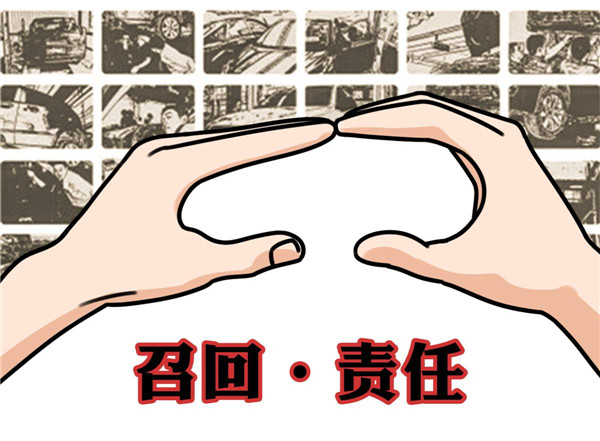Since December 1, 2017, SAIC-GM-Wuling Automotive Co., Ltd. has recalled a total of 936.86 million SUVs and MPVs. Including part of the 2014 Baojun 730 produced during the period from June 3, 2014 to October 13, 2016, totaling 384,157 vehicles; and some 2015 models/2016 produced from June 2, 2015 to September 30, 2017 The Baojun 560, a total of 554,529 vehicles.

Automobile recall is the performance of car companies responsible for consumers, and it is also a manifestation of the maturity and perfection of China's auto industry. The auto companies' initiative in filing with the AQSIQ and recalling defective automobile products is not only understandable but also correct.
"To correct mistakes and to change them" is naturally an affirmative attitude, but the author believes that companies should also promptly summarize "what are the root causes of mistakes" and "how to effectively prevent the occurrence of mistakes." The author reviews the SUV and MPV recall incidents that occurred in recent years and found that more and more cars are involved in recalls due to parts and components problems.
For example, as mentioned at the beginning of the article, the recall of SAIC-GM-Wuling since December 1 this year is due to suppliers' manufacturing reasons. Some tank ventilation hoses may experience ageing and cracking after long-term use. In extreme cases, when the fuel tank is full of fuel, there may be fuel vapor leakage and there is a safety hazard.
Coincidentally. From March 10 this year, Beijing Benz recalled some C-class and GLC SUVs, totaling 5,371 units, from September 11, 2016 to September 28, 2016. The reason for the recall is that the fuel tank supplier's manufacturing deviation causes the oil level sensor to be unable to synchronize with the oil level. The fuel gauge cannot display the correct fuel quantity. Once the fuel is exhausted, the vehicle will lose power until it stops. In addition, the oil level sensor may not be lifted after refueling, and the oil gauge will incorrectly display a low oil level, which may present a safety hazard.
From November 21 last year, FAW-Volkswagen recalled some of the Audi Q7 models manufactured from August 18, 2015 to July 10, 2016, totaling 2,251; and part of November 11, 2015 - November 2015 A total of seven Audi Q7 models were produced between the dates. The reason for the first part of the vehicle recall is that due to part manufacturing problems, the third row of seats may shift forward when the vehicle collides, increasing the risk of passenger injury. The reason for the second part of the recall is that because the supplier did not protect the circuit board of the steering control unit from dust particles in the manufacturing process, it may cause a short circuit in the circuit board, affecting the steering assistance function of the vehicle, causing inconvenient steering and potential safety hazards. .
With the continuous expansion of the automobile industry in China, the scale of the parts purchased by vehicle manufacturers is increasing. The possibility of large-scale recalls due to defects in one batch of parts is also increasing. Therefore, it is very important to strictly select suppliers and improve the quality inspection capabilities of parts and components to prevent the occurrence of large-scale recalls.
The author believes that, first of all, when the vehicle manufacturer first selects a supplier, it should strengthen the review of the component supplier, inspect whether it has the qualification for producing related products, and conduct strict quality inspection on the component products it provides. If you encounter parts and components companies that have experienced problems in the past, they should be more cautious and consider whether their current products have been improved or improved. In general, it is to strictly select genuinely reliable component suppliers instead of relying on “relationships†and “human relationsâ€.
Secondly, in the course of cooperation, if a vehicle is recalled due to a product provided by a component supplier, the vehicle manufacturer should not only promptly repair the consumer's vehicle, but should also carefully review and review the reason with the component supplier. For parts and components suppliers that are already "backward in technology," they should be eliminated and updated in a timely manner.
In addition, a powerful vehicle company can trace its quality management back to the upstream of the supply chain, supervise its own suppliers' production processes, provide guidance from the process, and require suppliers to strictly control the production process. qualified products.
The vehicle manufacturers strictly control the quality, not only to strictly match the quality of the entire vehicle, but also to check the quality of the parts suppliers' products. Only by ensuring that each component is a “boutiqueâ€, the entire vehicle can truly become "High-end products", and ultimately from the source to eliminate the large-scale recall caused by parts and components problems.
Elevator Accessories ,Steel Elevator Part,Elevator Non-Standardized Part ,Steel Elevator Accessories
Ningbo Metal Sharing Supply Chain Management Co., Ltd , https://www.customsharing.com
![<?echo $_SERVER['SERVER_NAME'];?>](/template/twentyseventeen/skin/images/header.jpg)